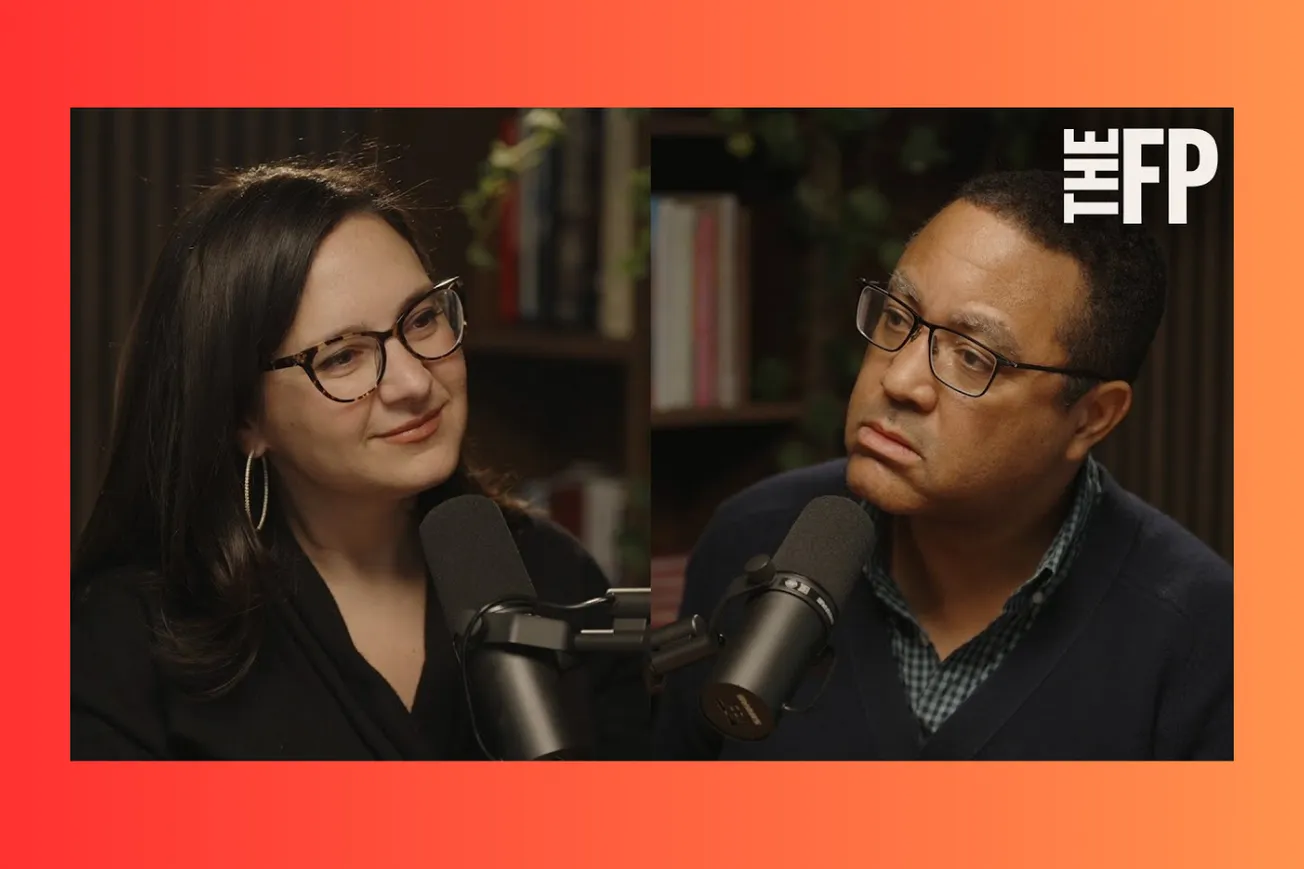Table of Contents
Linguist John McWhorter, known for criticizing woke culture, makes a surprising case for they/them pronouns in his latest book.
Key Takeaways
- Pronouns trigger intense reactions because they're grammatical tools, not regular words—like asking someone not to use their middle finger
- They/them has centuries of precedent in English, dating back to Chaucer's era as a gender-neutral option
- McWhorter supports they/them despite opposing other "woke" language changes, seeing it as practical rather than political
- The linguist distinguishes between polite accommodation and coercive language policing that punishes minor infractions
- Historical pronoun shifts show resistance is normal—people once complained when "you" replaced "thou" in the 1600s
- Current political battles over language happen from both left and right, creating an exhausting cultural whiplash
- Academic and social media environments amplify language controversies beyond their real-world significance
- McWhorter predicts they/them usage may stabilize among educated elites while remaining optional elsewhere
- The key test for language changes: are they genuinely helpful or just performative activism?
The Unexpected Alliance: A Woke Critic's Pronoun Defense
Here's something that might surprise you: John McWhorter, the Columbia linguist who wrote "Woke Racism" and regularly calls out progressive language policing, has written an entire book defending they/them pronouns. That's right—the same guy who's been pushback against linguistic virtue signaling is now making the case for one of the most contentious language changes of our time.
During a recent conversation with Barry Weiss, McWhorter explained this apparent contradiction with characteristic directness. "If there is an argument that we should look beyond the gender binary, if that is a form of progress, then we need a pronoun that corresponds to that sense," he said. "And if there's going to be a pronoun like that, you can't just make up a pronoun—you can't and so we're going to use they."
What makes this particularly fascinating is timing. McWhorter's book "Pronoun Trouble" hits shelves just as Democrats are scrubbing pronouns from their social media bios and retreating from the very language battles they championed just a few years ago. It's like watching someone argue for vinyl records just as everyone's switching to streaming.
But McWhorter isn't being contrarian for sport. His argument rests on something much more fundamental than politics: the nature of how language actually works and changes over time.
Why Pronouns Feel Like Nuclear Bombs
"Pronouns cause a deeply visceral reaction from people," McWhorter observed. "They're so tiny and they feel like they go off like nuclear bombs." But why do these little words pack such an emotional punch?
The answer lies in understanding what pronouns actually are. As McWhorter puts it, "They're not words—they are little screws, they're little nails." Real words are things like "walrus" or "serendipity." Pronouns, on the other hand, are grammatical traffic cops that keep our thoughts organized.
- Pronouns function as essential grammatical infrastructure rather than vocabulary
- They operate below conscious awareness, making changes feel deeply disorienting
- Asking someone to change pronouns is like telling them not to use their middle finger—you'll mess it up repeatedly
- The visceral reaction happens because pronouns are "your essence—they are grammar rather than words"
This explains why pronoun changes throughout history have always met resistance. When English speakers started using "you" for both singular and plural (instead of the old "thou" for singular), people complained bitterly. That shift happened gradually from the 1600s through the 1700s, and now nobody thinks twice about it.
The Historical Case for They/Them
McWhorter's strongest argument for they/them isn't political—it's historical. English has used "they" as a gender-neutral singular pronoun for centuries. "Tell each student they can pick up their paper tomorrow"—sentences like this have been perfectly normal since Chaucer's time.
What's happening now is simply an extension of existing usage. Instead of only using singular "they" for hypothetical or unknown people, we're now using it for specific individuals who prefer it. "So we've already been using it that way, well now we can just extend it somewhat," McWhorter explains.
This historical precedent matters because it shows they/them isn't some radical linguistic innovation. Languages like Chinese have always had gender-neutral pronouns, and English has had this capacity all along—we're just being more intentional about it.
- Singular "they" appears in Shakespeare, Chaucer, and centuries of English literature
- The usage follows natural linguistic patterns rather than forcing artificial changes
- Unlike invented pronouns (ze, hir, xe), they/them builds on existing grammatical structures
- Most people already use singular "they" unconsciously in certain contexts
McWhorter tried various invented pronouns in his head—even "heh" as a combination of "he" and "she"—but none work because "you can't just make up" a pronoun. They're too fundamental to language structure.
Drawing Lines: Politeness vs. Coercion
Here's where McWhorter's analysis gets really interesting. He supports they/them while simultaneously critiquing the broader phenomenon of coercive language policing. How does he square this circle?
His litmus test is elegant: when language rules require "laborious interpretation" to understand why something is offensive, you're probably dealing with performative activism rather than genuine harm prevention.
McWhorter recalls the case of Jeffrey Lieberman, a psychologist who lost his career for calling a Black model "a freak of nature" in terms of her beauty. "A whole bunch of people came down upon him saying that to call a black woman a freak is wrong because of black women in associations with sexuality," McWhorter explains. "He deserved to maybe be told that wasn't ideal and then he should have been able to go on with his life."
The distinction matters:
- Genuine offense requires obvious intent to harm or clearly harmful impact
- "Laborious interpretation" suggests people are "enjoying being mean" through linguistic gotcha games
- True politeness accommodates reasonable requests without demanding ideological submission
- Coercive language policing uses minor infractions to establish dominance
When it comes to they/them, McWhorter sees a reasonable accommodation rather than coercive demand. "What does it hurt?" he asked Jordan Peterson during a now-famous exchange at the Aspen Ideas Festival. "It would probably be more civil to just call people they when they asked for it."
The Politics of Pronoun Resistance
But McWhorter acknowledges the political dimensions can't be ignored. They/them pronouns became entangled with a broader set of ideological changes around gender, sexuality, and social hierarchy. Many people resist not because of linguistic concerns but because they see pronouns as part of a larger political project.
"Once in the late teens I started writing quietly favorable things about the new they, I started hearing from some people—always people left of center, always women—really alarmed that I was favoring that because they were saying in the wake of this comes surgery and bathrooms and sports," McWhorter recalls.
This creates a genuine dilemma. Can you support they/them pronouns while opposing other aspects of gender ideology? McWhorter thinks so, but he admits it's complicated.
- They/them asks people to avoid making gender assumptions, not to affirm contested claims
- Unlike preferred gendered pronouns, they/them sidesteps rather than contradicts biological reality
- The pronoun functions as "an elegant end-run solution" that avoids more contentious battles
- Critics worry it's a "gateway drug" to more radical changes, but McWhorter sees this as separable
He's particularly skeptical of language changes that reduce people to biological functions—like saying "sperm donor" instead of "dad" or "womb" instead of "mom." These strike him as genuinely dehumanizing in a way that they/them doesn't.
Cultural Whiplash and the Woke Right
What makes this moment particularly surreal is how quickly the political winds have shifted. Democrats who championed pronoun declarations are now quietly removing them from their bios. AOC deleted her pronouns within days of the 2024 election. Gavin Newsom is pretending he never used "Latinx."
But instead of a return to linguistic normalcy, we're seeing what McWhorter calls the "woke right"—the same punitive approach to language, just from the opposite political direction. Trump's administration is scrubbing words like "equity" and "diversity" from federal websites, including removing descriptions of Jackie Robinson's anti-segregation protests.
"The backlash is excessive when it becomes that we're going to allow free speech except when it comes to all of these words that can be connected to battling power differentials," McWhorter observes. The result is exhausting cultural whiplash where different political tribes take turns policing language.
This bothers McWhorter more than partisan consistency might suggest. As someone who positioned himself as politically "purple," he's watching both sides embrace the same illiberal tactics he criticized in "Woke Racism."
What Happens Next?
So will they/them stick around? McWhorter isn't entirely sure. Writing in 2023, he assumed the usage was permanent. By 2025, he's having second thoughts.
"I have seen a lot of people between say 10 and 20 eagerly embracing they and then kind of let it go as they got a little older," he admits. Neither of his daughters has embraced the usage, despite being socially conscious young people.
What he's seeing instead is "pronoun bisexuality"—people using "she/they" or "he/they" to signal flexibility without fully committing to gender neutrality. This might represent a more sustainable middle ground than the either/or approach of earlier years.
The real test will be whether they/them can survive outside elite educated circles. McWhorter suspects it might become like "Latinx"—a marker of certain social and political affiliations rather than a broadly adopted change.
But here's the thing that makes McWhorter optimistic about they/them specifically: it doesn't ask people to deny reality or submit to ideological demands. It just asks them to be a bit more linguistically flexible in service of treating people kindly.
"They them I think can settle in and just stay because it doesn't hurt anybody," he concludes. In a time of extreme polarization and linguistic warfare, maybe that's exactly the kind of reasonable compromise we need.
For someone who's spent years critiquing progressive language policing, McWhorter's embrace of they/them pronouns offers an interesting model: support changes that serve genuine human needs while resisting those that function primarily as political loyalty tests. It's a nuanced position that will probably irritate partisans on both sides—which might be exactly the point.





